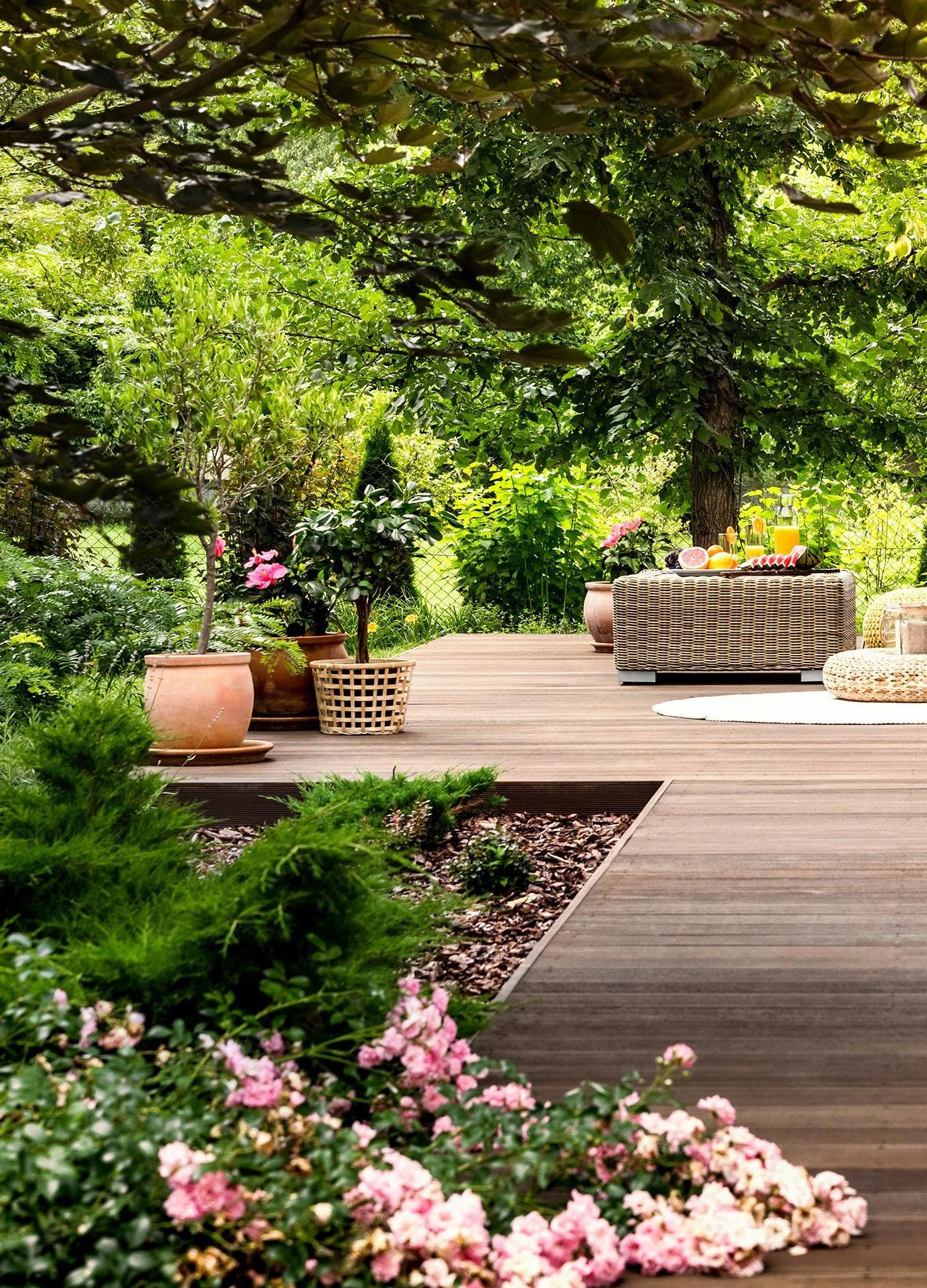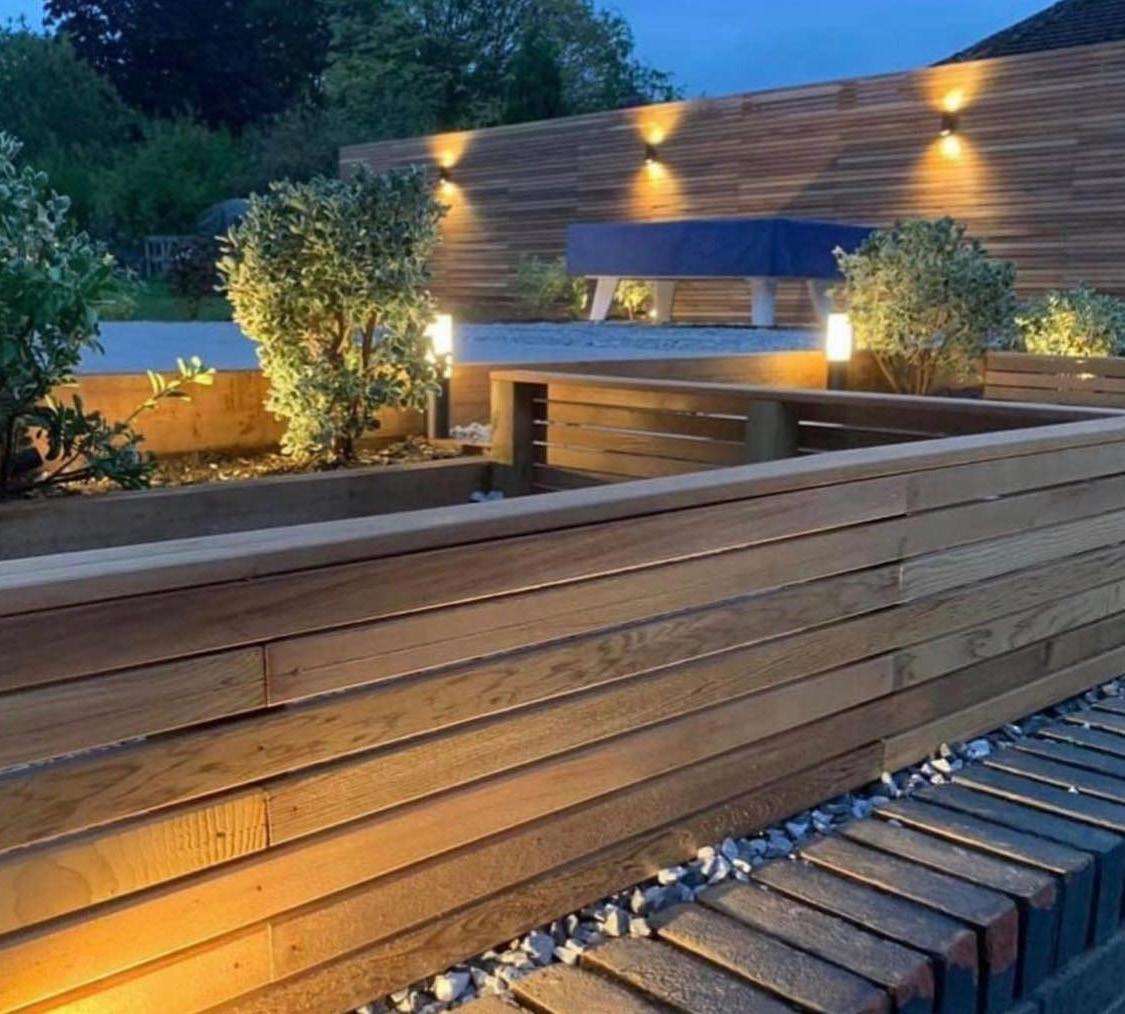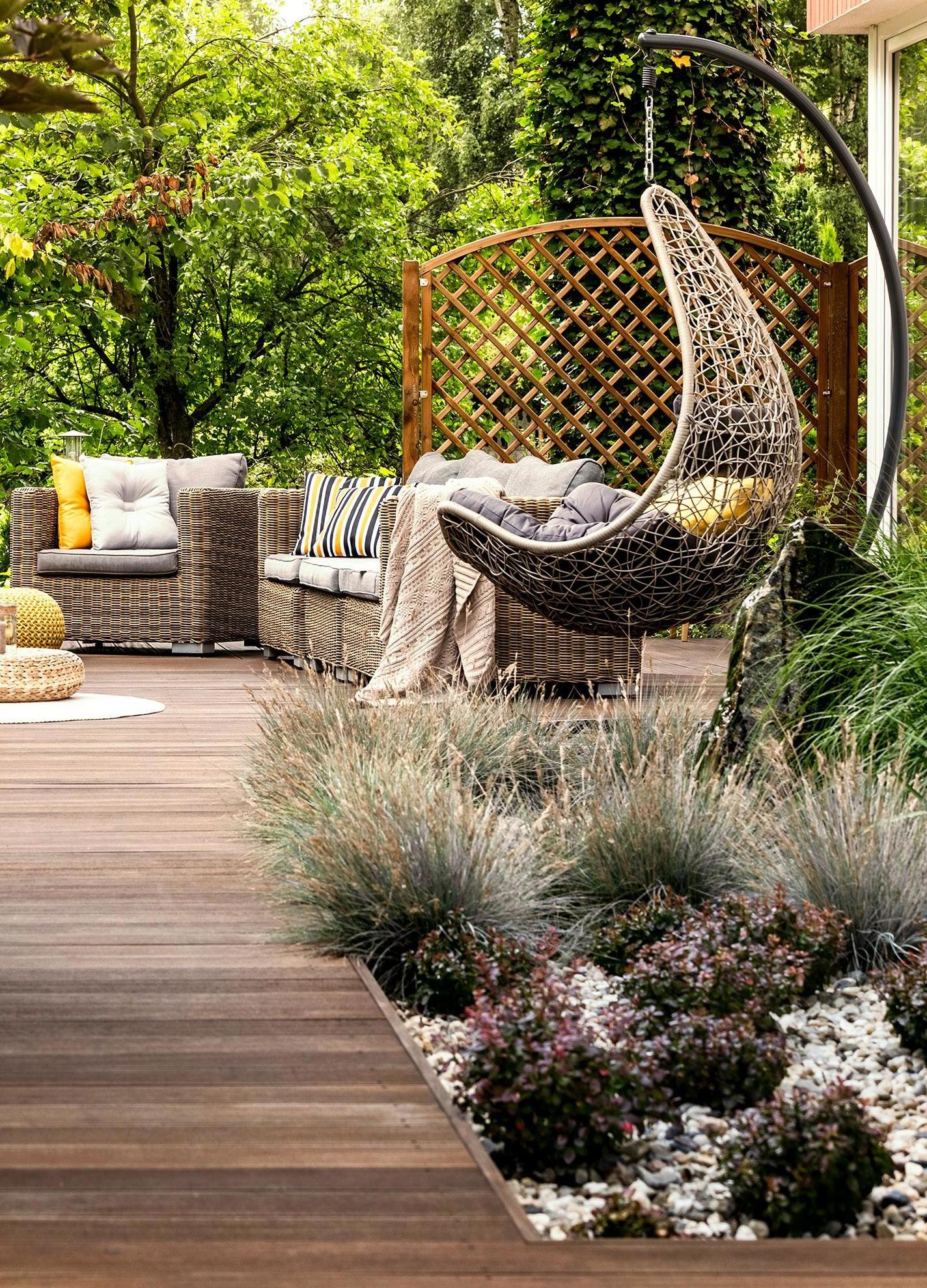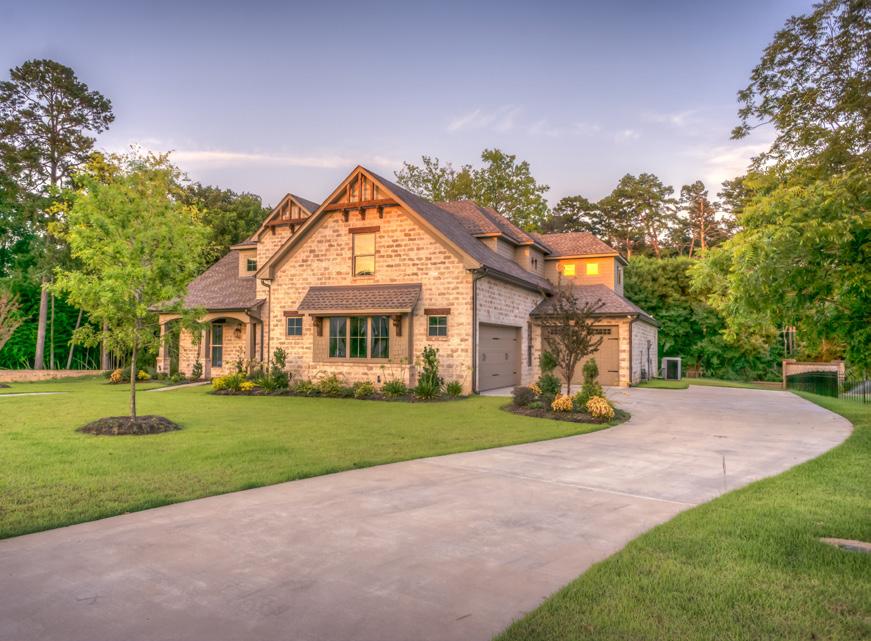
3 minute read
What is landscaping, and do we need it?
We are now spending more time than ever in our gardens. An outside room, a sanctuary - whatever you add to your garden this summer may prove to be money well spent in more ways than one.
What is landscaping?
Advertisement
To define it literally, landscaping is "The process of making a garden or other piece of land more attractive by altering the existing design, adding ornamental features, and planting trees and shrubs". In practice, a professional landscaper should bring much more to the table than simply the labour of planting trees and shrubs:
Planning
Before any physical work is started, everything must be planned. If the work is being carried out by an external team rather than a DIY project, this phase will include discussing your needs and desires. This would include discussions surrounding the scope of your particular project and your budget. Plans can then be created, which will outline all of the details needed in order to progress.
Ground Preparation
Frequently, the ground in the area must be prepared prior to any form of installation or build. This can be anything from simply removing grass or existing obstacles to large-scale debris removal and ground levelling. This step is crucial not only for effective installation but for hassle-free maintenance too.
Installation
Now that everything is planned, prepped, and there's nothing left to get in the way, the installation of landscaping elements can begin. Hardscape elements (such as patios, fences, walkways and retaining walls) are often installed first. This provides a good, defined outline and framework that can be built upon/planted throughout the rest of the installation.
Maintenance
The installation's done, the space looks beautiful - but that's not the end of the process. Maintenance is required to keep your newly-landscaped area looking (and living) the way it deserves to. The amount of maintenance required will vary depending on the project. Generally, maintenance involves taking care of the plants (weeding, irrigation, fertilising etc.), as well as maintaining any wooden structures or stone paving and bricks.
What are the benefits?
The benefits of anything, landscaping included, are often subjective; however, there are some broader benefits to landscaping that we think most people would agree on…
Landscaping creates beautiful spaces
You wouldn't think twice about why it is a good idea to hire an interior designer when you are redesigning a room in your house, and the same goes for a professional landscaper. A good landscaper has an eye for what works and what doesn't, can call on their experience to make suggestions in-line with your desires, and, ultimately, help create a beautiful outdoor space.
The visual appeal of a well designed and landscaped space is good not only for property value but also for personal happiness and calm. Imagine the feeling you get from tidying up the lounge, putting everything in its correct place and neatly organised.
This calm feeling derived from the transition of messy to neat is the same feeling you experience in a neatly organised and landscaped outdoor space.
Increase the value of your
property As we alluded to earlier, landscaping can improve the market value of your property. The outdoor spaces around your property are akin to the packaging of a product or the presentation of your favourite dish at a restaurant. Although it isn't 'the main event', it is a major contributory factor to how 'the main event' is perceived.

Spending time and money on the space outside of your property can help bring in a better return on your investment should the time ever come that you decide to sell up. Professionally-landscaped outdoor spaces are a major selling point for your property, and studies have shown could see a market value increase of up to 20%. On a few hundred thousand pound house, that percentage represents a fair amount of return.

Landscaping can protect the environment
Many landscaping projects help to create unique habitats and microclimates that can aid both the fauna and the flora in the surrounding area. Particularly if the natural surroundings are incorporated, and native plants are used, these outdoor spaces become beautiful, safe havens that require less long-term resources to maintain.
The bees will be particularly grateful. Plants and shrubs attract essential pollinators to the area, helping them survive and thrive whilst also ensuring the continued development and health of our planet. And well, if that isn't enough reason to undertake a little garden landscaping, then I don't know what is? eye Homes & Gardens











